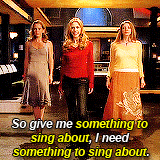FrogReaver
The most respectful and polite poster ever
Perhaps that's one thing that separates you from others. Your mix of time/interest/motivation leaves open the possibility to put the time and effort into learning/trying new systems. Not everyone has the time/interest/motivation to learn and try a new system.I have never gotten this perspective. I'm not looking for a perfect system. I'm looking for a game. I'm not making a long term commitment.
For example my group meets for 3ish hours a week. We've tried a few different games and have been playing a few years. 5e of course, Stars without number (great game), A battletech RPG and a 3 page simple game one of the players wrote. In general Stars without number took 1-2 sessions to even get started up. It took a few more sessions to really run smoothly (personally I prefer it to 5e and even the simple 3 page game I prefer to 5e). The Battletech RPG was similar in terms of set up time and smoothly running time (and was mostly a mini war game at least how we played it). But we are ultimately back to playing 5e. Why? IMO, because it caters to the group as a whole more. Why don't we try out alot of different games to see if one works even better for us? The time investment into trying and learning a new system isn't typically worth it, though the players are very accommodating if someone wants to try something for a session or 2.



